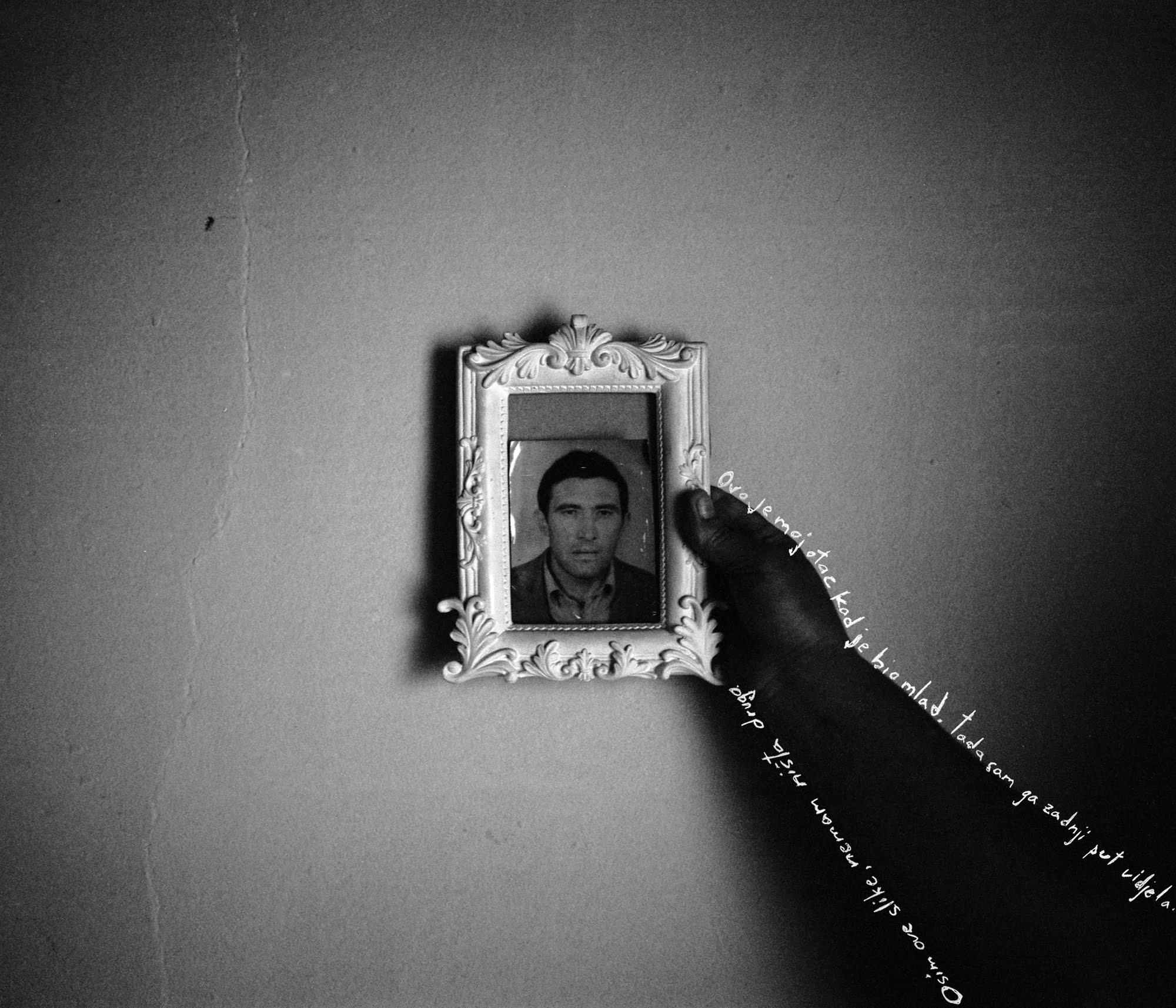10 years after the Dayton agreement that officially ended the conflict, Hazira’s brother Merfin stepped on a landmine near a refugee camp and died.
Hazira later framed his obituary photograph in a broken frame and tapped over it with the only tape she had: an orange safety tape with German printed on top of it. The warning, among others, reads: Nicht Fallen (do not fall).
“This was my father when he was young. This is when I last saw him. Besides this photograph, I have nothing of his left.”Mirsada Beganović’s only image of her father, who was killed in Srebrenica.
Asima does not have a single image of her family from before the war.
“The empty frame,” she said “helps me imagine how life used to be.”
Harun at the doorstep of their barrack in Ježevac refugee settlement.March 2021.
A room in the Barake refugee settlement. November 2021.
Karaula refugee settlement. Bosnia and Herzegovina. March 2021.
A diptych of Mirsada in Višča refugee settlement, Bosnia and Herzegovina. March 2021.
Alan and Goran (a sequence) scavenging for metal at the Tuzla city dumpsite, Bosnia and Herzegovina. March 2018.
Read More
Children in Karaula refugee settlement. Bosnia and Herzegovina. January 2020.
Šugra Mustafić’s image of her deceased husband who was killed in Srebrenica. Ježevac refugee settlement, Oskova, Bosnia and Herzegovina. September 2017.
Hazira Đafić washes hands in the puddle, after looking for coal that she sells on the black market.
“Coal is the bread and butter for us refugees,” she and her husband Zaim would often say, as there are no opportunities for them to find regular employment.
As the local municipality does not pick up garbage from refugee settlements, the residents burn their waste.
They call it the volcano of Ježevac.
“How am I to know? I love you. I don’t know what has happened.” Nena after being asked how she arrived to the refugee settlement in the 1990s. In Mihatovići refugee settlement. Bosnia and Herzegovina. January 2020.
Abaz. Višča refugee settlement. Bosnia and Herzegovina, May 2023.
Hazira and Zaim Alić in Ježevac refugee settlement. Bosnia and Herzegovina. February 2023.
Mersudin, Davud, Anis, and Amar, the second and third generation of the displaced, play football in Karaula refugee settlement. Bosnia and Herzegovina. March 2021.
“When I sleep, sometimes I visit my home village.”
Hazira on her doorstep in the Ježevac refugee settlement, Bosnia and Herzegovina. February 2023.
Bosiljka Jakovljevič doing dishes in the bathroom of the collective centre in Pančevo, Serbia, where she has been livingwith her husband for over 20 years. March 2017.
Karaula refugee settlement. Bosnia and Herzegovina. January 2020.
“When she fled, Nena first lived in Kiseljak, and then came to Mihatovići in 1998. She had four sons, but only one of them survived. She has suffered a lot. It was too much for her, all this sadness.”
The account of Nena and her arrival to Mihatovići refugee settlement by her neighbour Nezira Musić. Bosnia and Herzegovina. January 2020.
